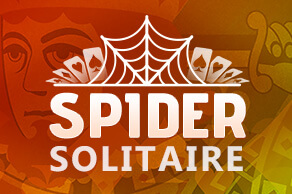
Charlie Hebdo’s editor-in-chief, Gerard Biard, speaks at the Freedom House in Washington, DC, on May 1, 2015. (Andrew Caballero-Reynolds/AFP/Getty Images)
Every once in a while some nice person congratulates me on my bravery over something I’ve written. I thank them, but inwardly I am chagrined by the praise because for most of my writing life, I have been cocooned by a mighty media organization and I write, moreover, in the glorious United States of America with its First Amendment and its tradition of tolerance. That is why Tuesday night I gladly go to the PEN American Center’s dinner and honor the French satiric magazine, Charlie Hebdo. These guys may not have taste, but they sure have guts.
The PEN dinner has suddenly become a controversial affair. Some important writers have pulled out of the event and many others have expressed their unhappiness. They consider Charlie Hebdo an inappropriate choice for PEN’s Freedom of Expression Courage Award. They consider the magazine’s provocative cartoons of the prophet Muhammad insulting to Muslims, a minority in France and therefore in need of special consideration.
I understand their point. I found the cartoons tasteless, but hardly lethal – although that was certainly the response to them. Back in January, Islamic extremists killed 12 staff members and contributors. That had not been the first attack on the magazine’s offices; in 2012 it had been firebombed. The staff knew it was in danger, and yet it continued to publish. If that’s not courage, then the word has no meaning.
The obligation of any writer now is not to condemn Charlie Hebdo but to salute it. Satire is tricky to pull off. Most of the time, I don’t like it since, generally, it lacks subtlety. So when Gary Trudeau criticized Charlie Hebdo in a recent speech, I agreed with what he had to say. “By attacking a powerless, disenfranchised minority with crude, vulgar drawings closer to graffiti than cartoons, Charlie wandered into the realm of hate speech,” he said. I nodded to that – although that reference to hate speech was itself going too far.
Since then, however, the issue has changed. For me, it is not about what Charlie did but what was done to it. (Besides, I am told I lack the necessary appreciation for the French satiric tradition.) The world is full of zealots and madmen who take supreme umbrage at some statement or cartoon and feel compelled to respond not with a letter to the editor, but with a fusillade from an automatic weapon. If ideas are held hostage by the threat of violence, then the people with the most guns win the argument.
After the January massacre at the magazine’s Paris headquarters, much of the world roared its outage. A grand march was held in Paris, with many people holding signs proclaiming “Je suis Charlie.” (“I am Charlie.”) It was a stirring expression of solidarity, but I for one am not sure I can be Charlie. I don’t know if I have the guts.







